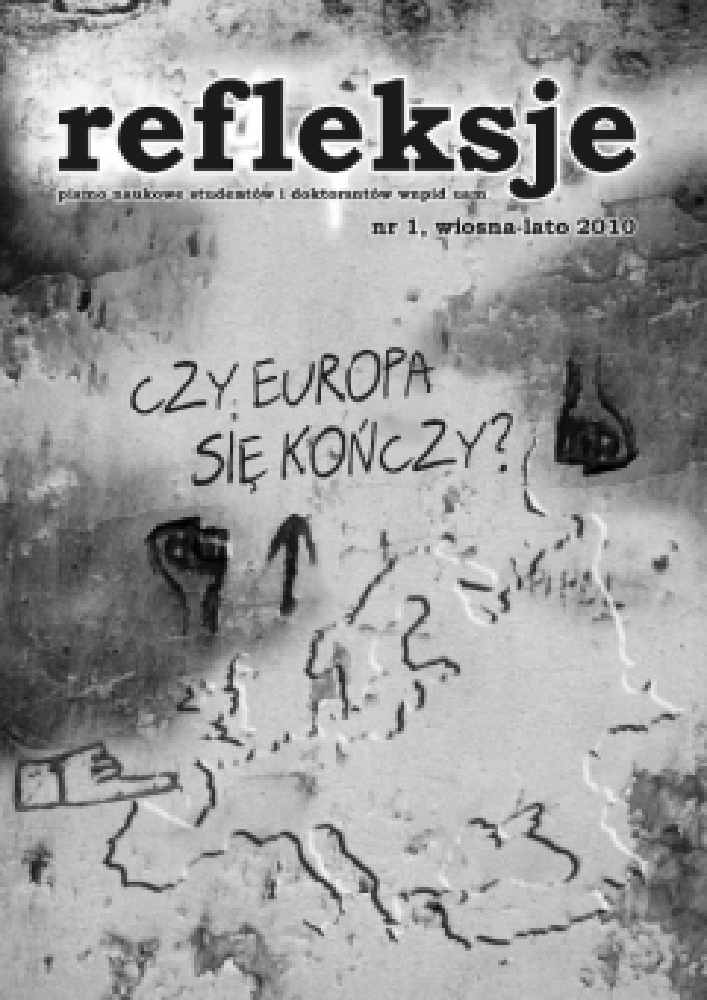Abstract
One of the most intriguing questions in political philosophy has long been the following: how to organize politics that not only appeases the conflict of groups and individuals but also allows to express even irrational beliefs. The answer that this article has dealt with is a proposition by Chantal Mouffe, called ‘agonistic democracy’. The concept is based on an claim that the exclusion of an emotional component from the public sphere can only lead to a political conflict. An example that confirms Mouffe’s assumptions is the expansion of European populism, which, according to the theory discussed in the article, may only be contained through recognizing the positive value of the conflictive nature of politics.
References
H. Arendt, Wprowadzenie w politykę, [w:] eadem, Polityka jako obietnica, Warszawa 2007
E. Laclau, Ch. Mouffe, Hegemony and Socialist Strategy: Towards a Radical Democratc Politics, Verso 1985
E. Laclau Hegemonia i socjalistyczna strategia. Przyczynek do projektu radykalnej polityki demokratycznej (Wrocław 2007).
E. Laclau, Dlaczego puste znaczące mają znaczenie dla polityki?, [w:] idem, Emancypacje, Wrocław 2004
A. Heywood, Politologia, Warszawa 2006
C. Schmitt, Duchowa i historyczna sytuacja dzisiejszego parlamentaryzmu, w: tegoż, Teologia polityczna i inne pisma, Kraków 2000
Ch. Mouffe, Pluralism and Modern Democracy: Around Carl Schmitt, w: eadem (red.), The Return of the Political, Verso 1993
Ch. Mouffe, Paradoks demokracji, Wrocław 2005
J. Rawls, Teoria sprawiedliwości, Warszawa 1994
J. Rawls, Liberalizm polityczny, Warszawa 1998
P. Mair, Demokracja populistyczna a demokracja partyjna, [w:] Demokracja w obliczu populizmu, red. Y. Mény, T. Surel, Warszawa 2007,
Y. Mény, T. Surel, Zasadnicza dwuznaczność populizmu, [w:] Demokracja w obliczu populizmu, red. Y. Mény, T. Surel, Warszawa 2007
